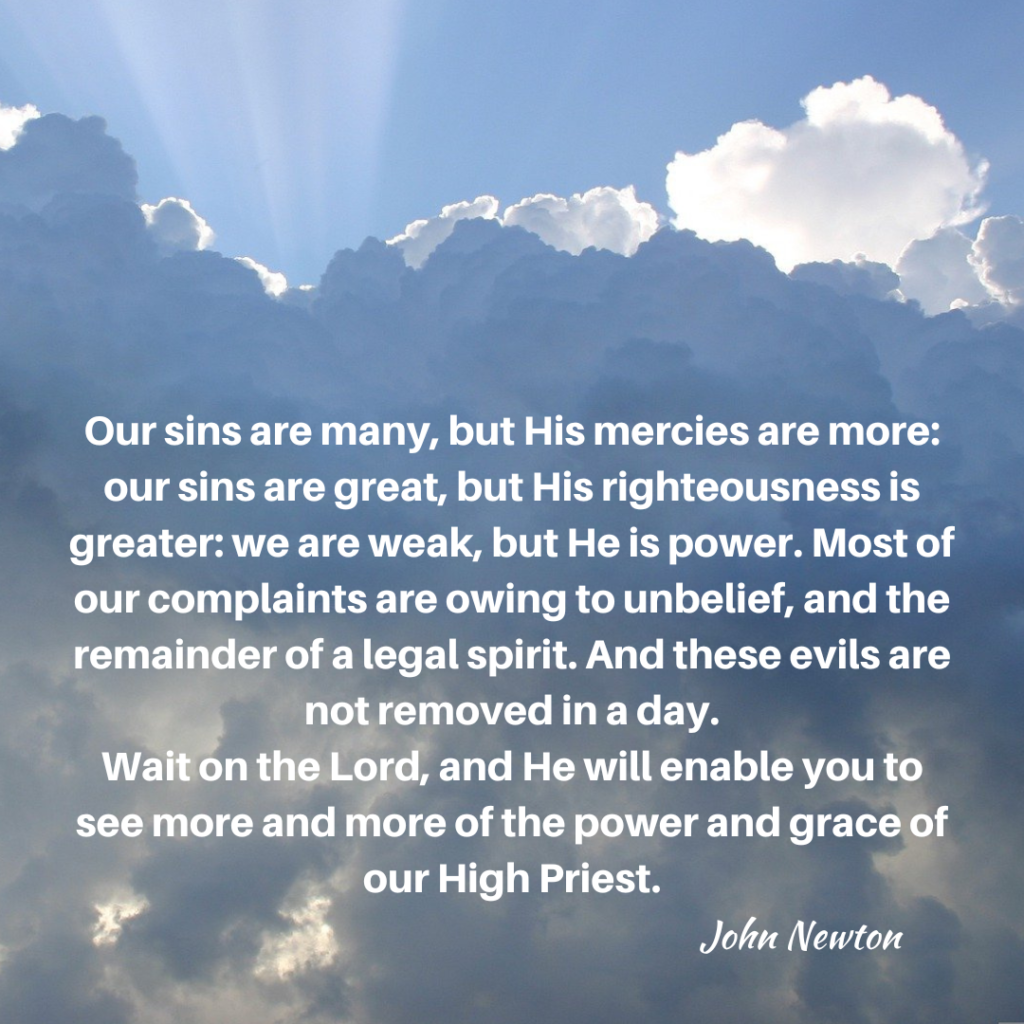I love the ocean, which is often used as an analogy for God’s mercy. The poet says about God’s mercy …
God’s boundless mercy is, to sinful man,
Like to the ever-wealthy ocean:
Which though it sends forth a thousand streams, ’tis ne’er
Known, or else seen, to be the emptier;
And though it takes all in, ’tis yet no more
Full, and filled full, than when full filled before.
~Robert Herrick
How blessed to know that God’s mercy is full, and filled full … his mercy is from everlasting to everlasting. His mercy is the fount from which his forgiveness flows.
My dear children, I write this to you so that you will not sin. But if anybody does sin, we have one who speaks to the Father in our defense—Jesus Christ, the Righteous One. He is the atoning sacrifice for our sins, and not only for ours but also for the sins of the whole world.
~1 John 2:1-2
Jesus’ death, sin paid in full, is the ultimate evidence of his mercy. God invites us to live in relationship with him — accepting this gift of mercy and love.
God hath two wings which He doth ever move;
The one is mercy, and the next is love:
Under the first, the sinners ever trust;
And with the last, He still directs the just.
~Robert Herrick
Celebrating the full-ness of His mercies today!
Matt Papa and Matt Boswell, the creators of this worship song, explain that the leading phrase, “his mercy is more,” comes from a letter written by John Newton in March 1767. Here’s just a bit from that letter:

Praise the Lord, His mercy is more
Stronger than darkness, new every morn
Our sins they are many, His mercy is more
Matt Papa, Matt Boswell
Reference: John Newton, “Cardiphonia” in The Works of John Newton (vol. 2; London: Hamilton, Adams & Co., 1824), 140–141.
